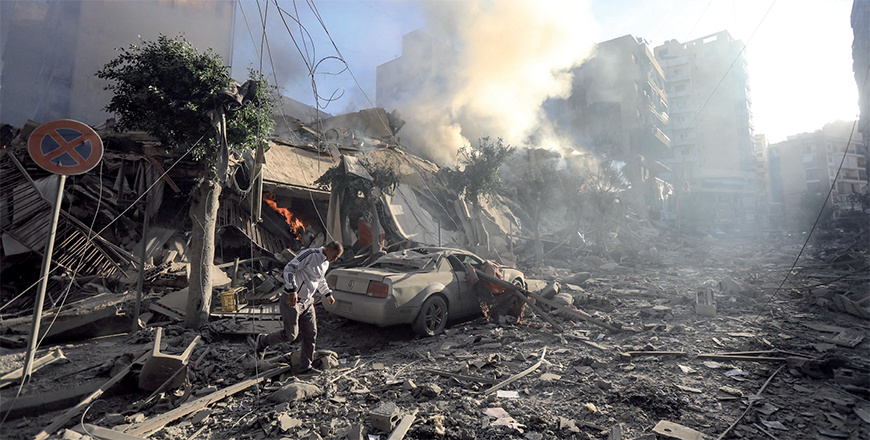You are here
Iran’s allies, not atoms, preoccupy Israeli generals
By Reuters - May 05,2015 - Last updated at May 05,2015
OCCUPIED JERUSALEM — While Israeli Prime Minister Benjamin Netanyahu thunders against a possible nuclear deal between Iran and world powers, his defence chiefs see Tehran's guerrilla allies as a more pressing menace.
Chief among these is Hizbollah, the Lebanese militia that fought the Israeli armed forces to a standstill in their 2006 war and has since expanded its arsenal and honed its skills helping Damascus battle the Syria insurgency.
Ram Ben-Barak, director general of Israel's intelligence ministry, accused Iran on Tuesday of "seeking footholds" from Syria to Yemen to Egypt's Sinai and the Palestinian territories. But he deemed Hizbollah a foe as formidable as the conventional Arab armies that fought Israel in the 1967 and 1973 wars.
"The only entity that can challenge us with a surprise attack on any scale nowadays is Hizbollah in Lebanon," Ben-Barak told a conference organised by the Israel Defence journal.
Israel believes Hizbollah has more than 100,000 missiles capable of paralysing its civilian infrastructure. Seeking to deter the guerrillas, Israeli generals have threatened to devastate Lebanon should there be another full-on conflict.
In the interim, Lebanese and Syrian security sources report regular Israeli air force sorties as part of an apparent effort to monitor and at times destroy weapons transfers to Hizbollah.
A January 18 air strike that killed an Iranian general and several Hizbollah operatives in Syria’s Golan Heights, northeast of Israel, suggested the Lebanese guerrillas have been setting up a second front close to Jordan, Israel’s security partner.
An Iranian-backed Hizbollah presence in the Golan “will pose a very big problem for us in the future”, Ben-Barak said.
Two Western diplomats who track Israel’s military assessed that it was now busiest securing the Lebanon and Syria borders.
“I don’t think anyone’s looking for escalation, but the potential for this to spiral out of control is high,” one diplomat told Reuters on condition of anonymity.
When Israel’s military intelligence chief, Major-General Herzi Halevy, visited Washington in March, as world powers and Iran entered the final stretch of negotiations on curbs to Iran’s nuclear programme, he urged US care not to inadvertently fuel regional instability.
“What he was really interested in getting across was the military threat from groups like Hizbollah, the [Tehran-backed] Houthis in Yemen, and the IRGC Ben-Barak predicted that sanctions relief under the Iran nuclear deal, whose deadline is June 30, would bring Tehran “several hundreds of billions of dollars” which would help it fund its regional allies.
Israel has condemned the proposed deal, under which Iran would scale down its nuclear projects in return for sanctions relief, as not tough enough to remove the risk of an Iranian nuclear weapons capability.
Related Articles
OCCUPIED JERUSALEM — Israel bristled on Sunday at the lifting of international sanctions on Iran and vowed to flag up any violations o
OCCUPIED JERUSALEM — Israel will escalate its fight against Iranian-aligned forces in Syria after the withdrawal of US troops from the count
BEIRUT, Lebanon — Israel's military said on Thursday it had hit Hizbollah's intelligence headquarters in the Lebanese capital, as troops bat












